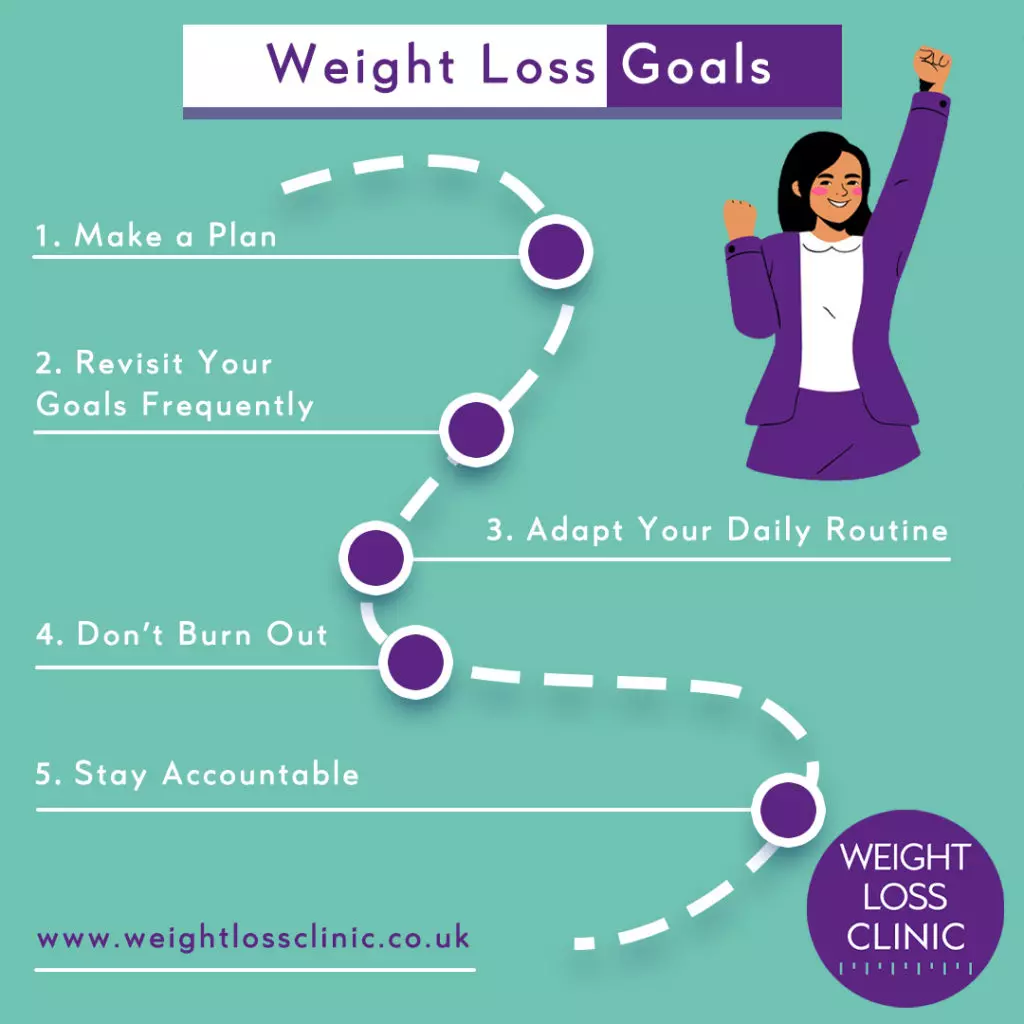Achieving a healthier, happier you is a journey that involves not only physical well-being but also mental and emotional balance. When it comes to weight loss, many people seek sustainable strategies that align with a healthy lifestyle, rather than quick fixes or fad diets. This comprehensive guide will explore six proven weight loss strategies that will work as the best diet plan for your weight loss. These steps are designed to help you achieve long-term health goals while fostering a positive relationship with your body.
Step 1: Set Realistic and Achievable Goals
One of the most important aspects of sustained weight loss is goal-setting. Setting realistic and achievable goals is essential for staying motivated and tracking progress. Too often, individuals set overly ambitious targets that can lead to frustration and burnout. It’s vital to approach body weight loss as a gradual process and to avoid setting yourself up for failure by expecting drastic changes in a short time.
Step 2: Adopt a Balanced, Nutrient-Dense Diet
A balanced, nutrient-dense diet is the cornerstone of any successful weight loss strategy. While calorie counting can help some people, focusing on nutrient-dense foods helps you nourish your body while still losing weight.
Which are the healthy diet foods to lose weight?
- Whole Grains: Choose whole grains like brown rice, quinoa, and oats over refined grains. Whole grains are rich in fibre, which promotes satiety and digestive health.
- Lean Proteins: Incorporate lean proteins like chicken, fish, tofu, and beans into your meals. Protein is vital for muscle repair and growth, and it keeps you feeling full longer.
- Healthy Fats: Healthy fats from sources like avocados, nuts, seeds, and olive oil are essential for brain health and energy levels.
- Fruits and Vegetables: These should make up a significant portion of your diet. They provide essential vitamins, minerals, antioxidants, and fibre, which all contribute to your overall well-being.
- Limit Added Sugars and Processed Foods: Excessive sugar and processed foods can contribute to weight gain and hinder your progress. Try to reduce your intake of sugary drinks, fast food, and snacks with high levels of refined carbs.
Step 3: Prioritize Regular Exercise
Exercise is one of the healthy habits for weight loss. Not only does physical activity help you burn calories, but it also improves your overall fitness, strengthens your muscles, and boosts your mental health. When it comes to exercise, consistency is key. You don’t need to spend hours at the gym to lose weight effectively; a regular exercise routine can be adapted to your lifestyle and preferences. Regular exercise is the best addition to your lifestyle for weight loss.
What are the types of exercise for weight loss?
1-Cardio Workouts: Activities like walking, jogging, cycling, and swimming are great for burning calories and improving heart health. Aim for at least 150 minutes of moderate-intensity cardio each week.
2-Strength Training: Building muscle through resistance exercises (e.g., weightlifting or bodyweight exercises) can increase your metabolism and help you burn more calories, even at rest. Aim to include strength training exercises 2-3 times per week.
3-High-Intensity Interval Training (HIIT): HIIT workouts involve alternating between short bursts of intense activity and periods of rest. These workouts are time-efficient and can burn a significant number of calories in a short period.
4-Flexibility and Balance Exercises: Yoga and Pilates can enhance flexibility, reduce stress, and improve posture—all of which contribute to a more holistic approach to weight loss.

Step 4: Get Enough Sleep
Sleep is often overlooked in weight loss journeys, yet it plays a crucial role in both physical and mental health. Poor sleep can interfere with your metabolism, disrupt hormone regulation, and ultimately you can’t achieve healthy weight loss goals. Conversely, adequate rest helps regulate appetite hormones and supports the body’s natural ability to burn fat.
Why does sleep matter for managing weight loss?
- Appetite Regulation: Sleep deprivation can lead to increased levels of ghrelin, the hormone that stimulates hunger, and decreased levels of leptin, the hormone that signals fullness. This imbalance can lead to overeating.
- Improved Metabolism: Poor sleep can affect how your body processes and stores carbohydrates, leading to weight gain over time.
- Better Mental Health: Lack of sleep is linked to increased stress and poor decision-making, which can make sticking to healthy habits more challenging.
Step 5: Manage Stress Effectively
Stress can significantly impact weight loss. When you’re stressed, your body produces the hormone cortisol, which can increase appetite and promote fat storage, particularly around the abdominal area. Managing stress is not only crucial for maintaining a healthy weight but also for improving overall well-being.
Why you should manage stress for weight loss?
- Cortisol and Fat Storage: Chronic stress leads to high cortisol levels, which can cause the body to store fat, particularly around the waistline.
- Emotional Eating: Many people turn to food for comfort when stressed, leading to overeating or unhealthy food choices.
- Mental Clarity: Stress can cloud your judgment, making it harder to make healthy choices. Reducing stress improves your ability to stick to your weight loss plan.
Step 6: Stay Consistent and Be Patient
One of the most important factors in achieving long-term weight loss plan success is consistency. Weight loss doesn’t happen overnight, and it’s important to be patient with yourself throughout the process. Small changes over time lead to lasting results, so stay committed and celebrate your progress, even if it’s gradual.
Conclusion
Achieving a healthier, happier version of yourself requires commitment, patience, and consistency. By following these weight loss strategies—setting realistic goals, adopting a balanced diet, prioritizing exercise, getting enough sleep, managing stress, and staying consistent—you can achieve sustainable weight loss while improving your overall well-being. Weight loss journey is not a one-size-fits-all approach, and finding what works for you is key. Keep in mind that true transformation comes from the best healthy lifestyle for weight loss that you can maintain for life, leading to a happier, more fulfilled version of yourself.


